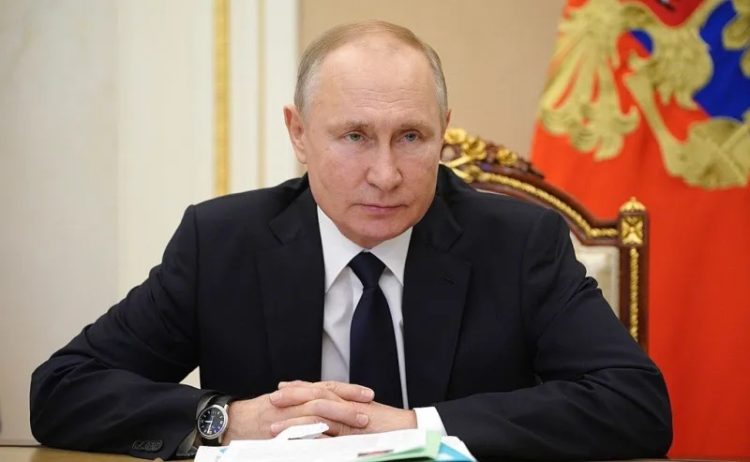However, the ministry believes it is unlikely for Russia to achieve that goal, as “sufficient quality forces are unlikely to be concentrated to achieve an operational breakthrough.”
Ukraine Working With Allies
According to Rotterdam Port CEO René van Egmond, at least 60 vessels will be sent from Dutch ports to countries at risk of famine and drought by the end of next spring, specifically Ethiopia, Sudan, South Sudan, Somalia, Yemen, Congo, Kenya, and Nigeria.
In addition to the U.N.-brokered deal allowing Ukrainian grain to pass through the Black Sea, the Kremlin has said those shipments have not reached the most needy countries.
Ukraine has raised over $150 million from more than 20 countries and the European Union to export grain to vulnerable countries. Despite its own financial straits, Ukrainian Prime Minister Denys Shmyhal said that Ukraine had allocated $24 million to purchase corn for impoverished countries.
On Saturday, Shmyhal met with his Lithuanian and Polish counterparts in Kyiv to reaffirm their commitment to resisting Russian aggression.
This is #Kyiv one day after a new wave of strikes across #Ukraine. Temperatures are already below zero and thousands of people do not have access to electricity and water. With winter fast approaching, civilians continue to pay an enormous price for the ongoing hostilities pic.twitter.com/ioMxrvZCef
— Jesus Serrano (@jaserred) November 24, 2022
The participants issued a joint statement condemning “Russia’s forces’ systemic war crimes in Ukraine that involve deliberate, indiscriminate, and disproportionate attacks against civilian populations and civilian infrastructure.”
Despite Russia’s latest attack on the power grid, Ukraine continues to repair it.
Ukrainian President Volodymyr Zelensky said in his Saturday evening video that millions of people still do not have electricity. The grid operator said that restrictions and blackouts across the country would continue because electricity producers cannot meet about three-quarters of consumer demands.
Consumption of electricity should be reduced to help restore power to all Ukrainian homes as soon as possible, Ukrenergo said in a statement on the Telegram messaging app.
The situation in Kyiv has improved, and most residents should now have at least four hours of electricity a day, according to Sergey Kovalenko, chief operating officer of YASNO, a subsidiary of Ukraine’s largest private energy company.
Additionally, according to Kyiv Mayor Vitali Klitschko, water service has been restored to the entire city, although not everyone has electricity.
The southern Ukrainian city of Kherson has been reconnected to electricity after the latest Russian attack on the town, which left several people dead and damaged the infrastructure.
Deputy Head of the Ukrainian Presidential Administration Kyrylo Tymoshenko said in a Telegram post that the first step would be to provide power to the city’s critical infrastructure, then to household consumers.
Officials are advising people to leave Kharkiv for safer parts of the country.
On Saturday, a kilometer-long line of trucks, vans, and cars congested the outskirt of the city of Kherson.
Yevhen Yankov was saying how sad it was that he and his family had to leave their home behind as a van he was in inched forward.
“It is sad that we are leaving our home. Now we are free, but we have to leave, because there is shelling, and there are dead among the population.”
The Ukrainian government has declared that the blackouts are meant to harm civilians, thus qualifying them as a war crime. On the other hand, Russia has claimed that it only targets military-related infrastructure and blames Kyiv for the blackouts.










COMMENTS